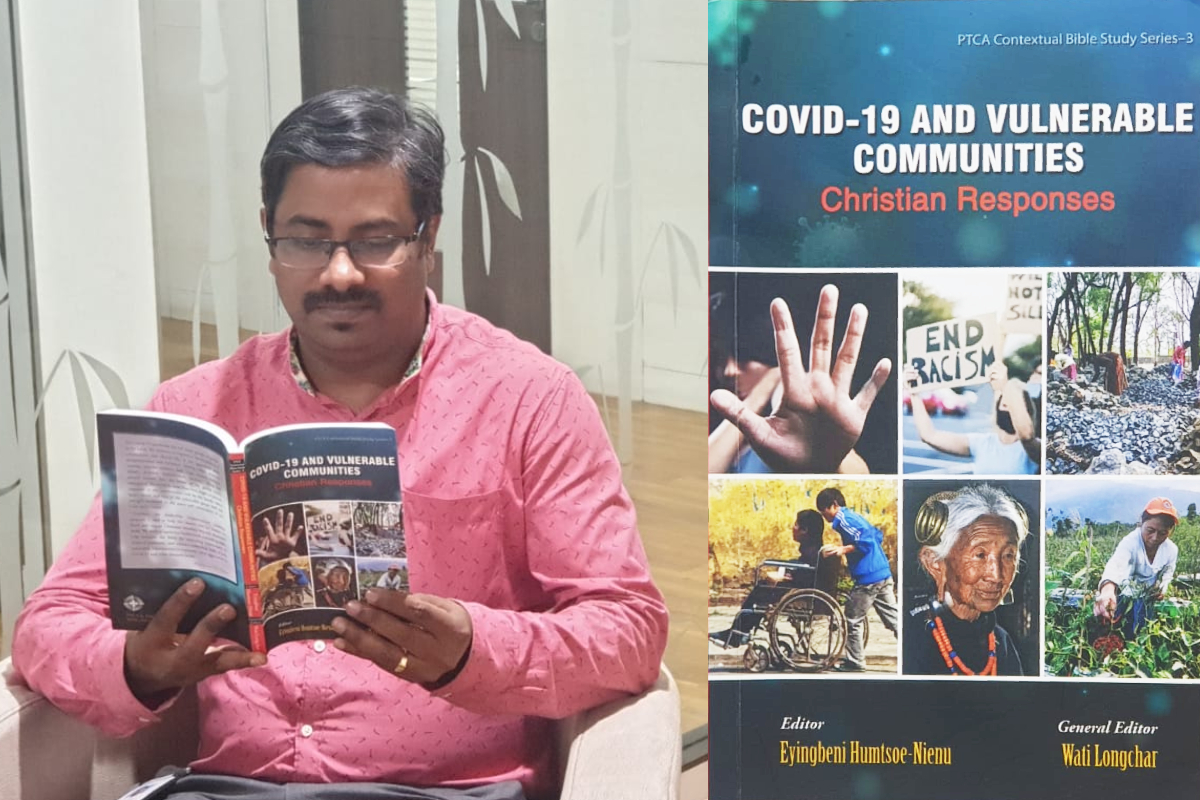
Eyingbeni Humtsoe-Nienu (ed), COVID-19 and Vulnerable Communities: Christian Responses ( PTCA/DBC/NECU, 2021) [ PTCA Contextual Bible Study Series, General Editor Wati Lonchar]
COVID has disrupted the “normalcy” of our lives. The deadly virus unleashed fear and panic across the world. And as if this wasn’t enough, the accompanying lockdown caused mounting distress and unimaginable suffering, particularly for the most vulnerable.
Everyone has suffered but a few more than the others. Worse, some have experienced multiple layers of suffering because the vulnerabilities are not the same. And therefore, the degrees and layers of suffering are quite different.
By now, of course, we know of many sordid tales of grief and loss. And yet, many harrowing tragedies remain untold. For example, indigenous people were among the most vulnerable communities that suffered during the Pandemic.
This collection of articles titled COVID-19 and Vulnerable Communities: Christian Responses is the outcome of a leadership program organized by the North-East Christian University (NECU), India. It seeks to bring to light the realities of vulnerable people in North-East India.
The writers believe that the testimonies, pains and the sufferings of people outside of the power structures must be heard. And therefore, this book attempts to recount the pain and suffering faced by different vulnerable groups in North East India. The articles narrate the impact of the Pandemic on daily wage earners, the unemployed, women, children, the ailing and persons with disabilities.
Many things stand exposed during the Pandemic, including the Church’s responsive readiness for a crisis of this scale and magnitude. The Church, so often, gets carried away by the fantasy of things going right. And so, these reflections seek to point to the blind spots and address the Church’s loss of perspectives.
The contributors seek to locate the Church in the context of vulnerable groups. Thankfully, the writers look at the Pandemic as an opportunity for the Church to live out its prophetic calling. This book provides valuable analysis and proposals for action.
Articles on the impact of the Pandemic on the student community, theological Institutions and online learning are significant local contributions to the Global discourse on pedagogy, the digital divide, and the future of learning.
The articles are informative and insightful. The spotlight on the reality of unemployment in the region and Racism suffered by North-East people in the mainland stand out. The attempt to push us beyond the Church’ usual rhetoric is laudable.
Articles on the impact of the Pandemic on the student community, theological Institutions and online learning are significant local contributions to the Global discourse on pedagogy, the digital divide, and the future of learning.
The writers become the ‘voices’ of the indigenous people of North-East India. However, their argument fails to draw the support of anecdotal reports and case studies. The absence of acknowledging what the Church is already doing is a downside.
Perhaps, these reflections need to be appended with what the Church has already done. This volume is in need of a companion volume that documents what the Church has done during the COVID crisis.
Much of our future remains unclear and uncertain. We don’t know if this Pandemic will eventually pass away quietly, or end quite badly. Either way, we need to respond. To succeed, we’ve got to do many things right. The proposals in the book can kickstart our journey to something better.









